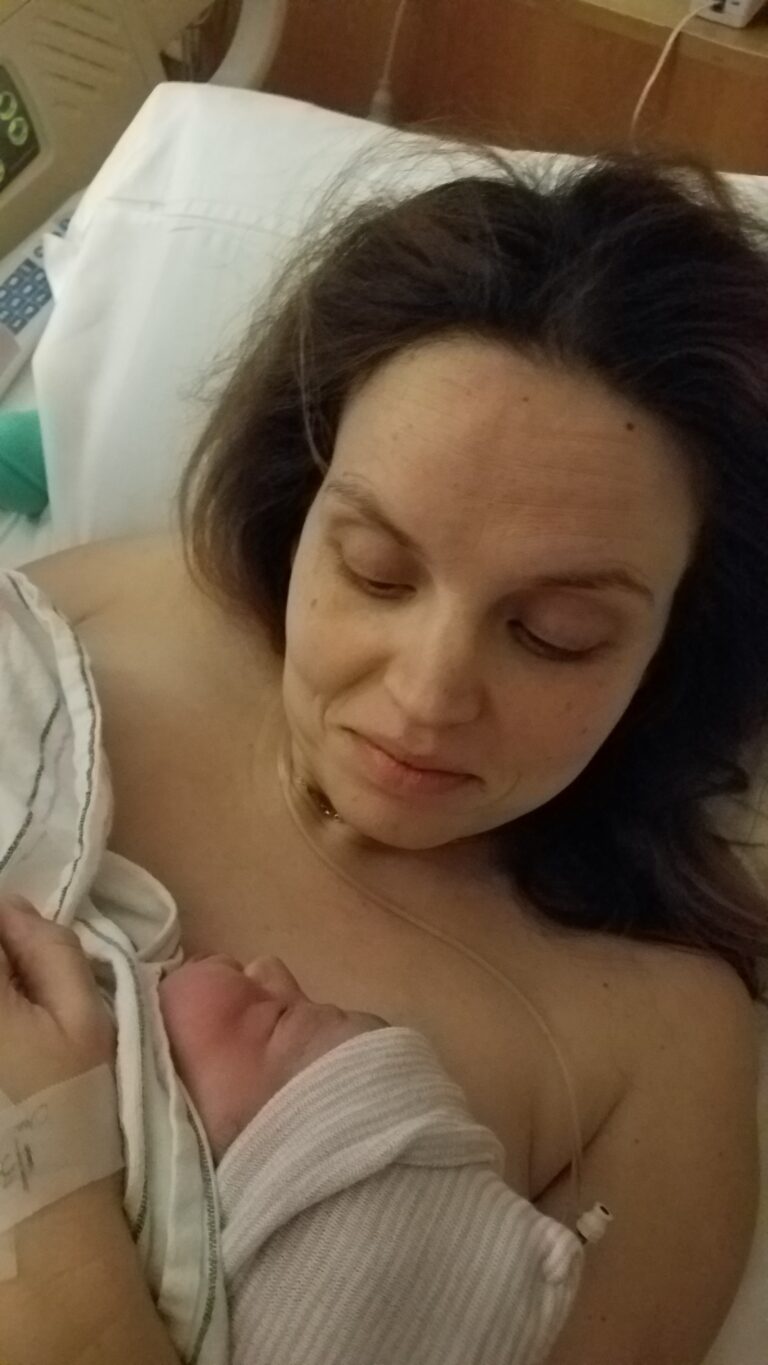Every nutrition expert has a moment when their expertise meets real life in unexpected ways. Mine happened in the early postpartum days over a fistful of Cheerios at 1 AM.
I was staring into a kitchen that I had stocked with fresh fruit, a rainbow of veggies, and all my best intentions when I was pregnant. Now, the physical demands of breastfeeding around the clock had my body burning through calories. I barely had the energy to plan a meal, let alone cook. As a registered dietitian and lactation consultant, I could recite the postpartum nutrition guidelines by heart: iron-rich foods, omega-3s, complex carbohydrates—yet here I was, wolfing down dry cereal and searching myself for permission to be human.
Before becoming a mom, I never imagined I’d find myself in the kitchen late at night, so hungry and tired, reaching for whatever was easiest. Motherhood helped me see my education and advice in a new light, giving me a new understanding of how it could affect people.
Learning to Hold Two Truths
I can’t tell you how many times I pulled open the freezer, glancing over the bags of vegetables I’d stocked it with before giving birth. Such aspirations! Meal prep Sundays, balanced plates, the works. Instead, with my baby finally sleeping and my stomach ready to give an all new meaning to The Hunger Games, I found myself reaching right past those freezer-burned good intentions for a frozen burrito.
As the microwave hummed and cooked, it wasn’t guilt that washed over me exactly…more like disappointment mixed with exhaustion. I hadn’t prepped anything actually ready to eat. Those veggies might as well have been decorative ice sculptures for all the good they could do after who-even-knows-how-many hours of sleep deprivation!
It also happened with snacks. When I’d reach for a stick of string cheese during a feeding session, my inner dietitian would chime in, “Processed, high sodium, that’s your second today.” But my mom-self would respond, “It’s protein I can eat with one hand, and here’s a handful of trail mix for good measure.”

I quickly learned that postpartum life meant holding two truths at once: knowing what optimal nutrition looked like and accepting what was actually possible. Some days, I’d manage to eat exactly what I’d recommend to my clients. Other days, sustaining myself meant embracing string cheese and frozen burritos—whatever was quick and available. Both were valid. Both were necessary.
The Nutrition Gaps Nobody Talks About
In all my years of practice, no continuing education course had truly addressed what I call “decision fatigue eating.”
Here’s what happens: After making countless decisions about your baby’s needs by noon, your brain needs a break from choosing. When faced with “What should I eat?” you might find yourself staring into the fridge as if it’s a puzzle, then reaching for whatever’s ready to go.
Professionally, I’d always emphasized nutrient density during lactation. What I hadn’t fully appreciated was the mental bandwidth required. Every meal decision happens alongside a stream of baby-related thoughts: Is the baby getting enough milk? Why is this poop that color?! Is that cry different from the last cry?
The research clearly shows what nutrients we need postpartum. What’s less discussed is how to access those nutrients when your mental energy is running low.
Understanding this has helped me reframe how I work with new moms, helping them to brainstorm ideas, recipes, and prep that work for them versus the textbook advice they might expect.
Rethinking Nourishment
Becoming a mom showed me that professionals could benefit from reimagining how we approach postpartum nutrition support. Pursuing perfect nutrition felt restricting because it added pressure to an already overwhelming time. Embracing flexible nourishment felt empowering because it replaced self-judgment with self-compassion.
Tuesday might bring smoothies and roasted vegetables. Wednesday might be drive-through nuggets enjoyed while the baby napped peacefully in the car seat. Both days provided nourishment. Both days, I was able to show up for my baby.
I learned to broaden my definitions rather than compromise my values. No energy for salad prep? Pre-washed greens straight from the bag work perfectly. Cooking feels daunting? Rotisserie chicken from the grocery store is a great option. Fresh vegetables seem overwhelming? Low-sodium V8 provides nutrients in a manageable form.
Plus, what works for one mom might not work for the next. For example, while I might discuss something like eggs in my classes for their choline, protein, and Vitamin D benefits, eggs simply aren’t appetizing for everyone—especially during pregnancy or postpartum! Despite my belief in whole foods, sometimes choline needs to come from supplementation. If that’s what works for you, that’s perfectly okay.
Sometimes the most nourishing choice is the one that meets you where you’re at!
Expanding the Conversation Around Feeding
I experienced breastfeeding’s unique nutritional demands firsthand, which opened my eyes to how conversations about postpartum nutrition sometimes focus primarily on breastfeeding. This unintentionally overlooks parents who pump, combo feed, or use formula.
Every feeding journey brings its own nutritional needs. Parents who exclusively pump need sustained energy for those dedicated pumping sessions. Formula-feeding parents need nourishment for recovery and the demands of caring for their babies. Combo feeders balance multiple approaches, each requiring energy and support.
This insight enriched my clinical work. I began using more inclusive language, ensuring every parent felt welcomed in our discussions about postpartum nutrition. Regardless of your feeding journey, you deserve support and nourishment.
How Motherhood Changed My Work
Before becoming a mom, I knew all the ins and outs of the textbook advice. Becoming a mom made the advice real. When I lead nutrition classes now, I still share evidence-based information, but my approach has evolved to include my lived experience as a mom.
I talk openly about eating quick meals while multitasking. I celebrate takeout nights and breakfast-for-dinner solutions. I share practical tips like stashing granola bars in convenient spots and embracing pre-cut vegetables as a smart choice. Most importantly, I lead with understanding and meet parents where they are.
And while my lived experience helps me relate to many of my patients, I’m also conscious that my experience doesn’t mean everyone will feel or experience the same things. I’m especially aware that my culturally lived experiences may differ from theirs, so I’m careful not to over-extend my attempts to relate.
My classes now focus on real-life solutions grounded in evidence: How do you nourish yourself with limited time? What are grab-and-go proteins? How do you remember to hydrate during busy days? We explore these questions together, working collaboratively to brainstorm ideas, recipes, and meal prep strategies that work for each individual parent.
Today, I support other parents through the postpartum nutrition and breastfeeding classes I teach at Aeroflow Breastpumps—created with flexibility, compassion, and practical support at their core.
Because I’ve been there, and I know this: You’re already nourishing your baby with love. Now let’s make sure you’re nourished too.
Author
-

Theresa Moutafis is a registered dietitian and lactation consultant with 15 years of experience working closely with families in the prenatal, postpartum, and lactation setting. Her work has included building perinatal nutrition programs, nutrition counseling, and lactation support, and she especially enjoys teaching about these topics to families in a group setting. When she's helping babies latch, she enjoys time with her three kids and husband, planning out an in-home tiki bar, reading, and dreaming about tropical vacations.
View all posts




